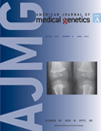Pioneering innovative therapies to improve the lives of those with genetic intellectual disabilities
You are here
Prenatal Diagnosis and Abortion - Summer 2015 Newsletter
Great finds
- UK Casino Not On Gamstop
- Non Gamstop Casino Sites UK
- Best Non Gamstop Casinos
- Slots Not On Gamstop
- UK Casino Not On Gamstop
- UK Betting Sites Not On Gamstop
- UK Casino Not On Gamstop
- Non Gamstop Casino UK
- Online Casino Real Money
- Meilleur Casino En Ligne Francais
- Casino Sites Not On Gamstop
- Non Gamstop Casino Sites UK
- UK Online Casinos Not On Gamstop
- Non Gamstop UK Casinos
- Best Online Casinos UK
- Best Non Gamstop Casinos
- Non Gamstop Casinos
- Casino En Ligne
- Casino Sites Not On Gamstop
- Casino Sites Not On Gamstop
- Casino Not On Gamstop
- Gambling Sites Not On Gamstop
- Slot Soldi Veri Online
- Migliori Casino Online
- Meilleur Casino En Ligne France
- Casino En Ligne
- Sites De Paris Sportifs Belgique
- Casino En Ligne
- Meilleur Casino En Ligne Belgique
- Nuovi Siti Di Scommesse
- Paris Sportifs Crypto
- Fm 카지노
- Casino Nouveau En Ligne
- Casino En Ligne Avis
- Casino En Ligne Avis
- Nouveaux Casinos En Ligne 2026
- Casino Sicuri Non Aams
- 카지노코인
- ブック メーカー 日本 おすすめ





 The study, conducted by Gert de Graaf, Frank Buckley, and Brian Skotko, applies rigorous statistical modeling to diverse data sets in an attempt to provide the most accurate number possible, and for one primary reason: So we can determine - over time - the impact emerging noninvasive prenatal screening (NIPS) technologies will have on the termination rate after a prenatal diagnosis of Down syndrome.
The study, conducted by Gert de Graaf, Frank Buckley, and Brian Skotko, applies rigorous statistical modeling to diverse data sets in an attempt to provide the most accurate number possible, and for one primary reason: So we can determine - over time - the impact emerging noninvasive prenatal screening (NIPS) technologies will have on the termination rate after a prenatal diagnosis of Down syndrome.